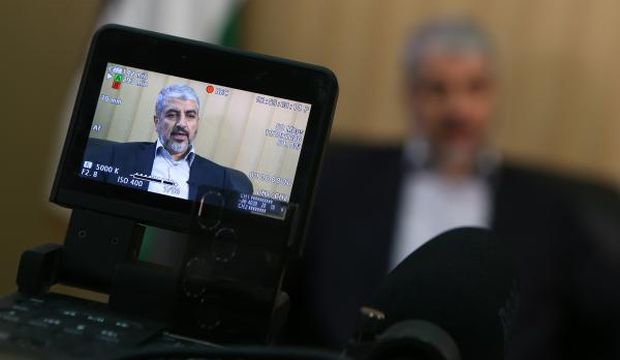The war in Gaza is the second stage of a process of change regarding the nature of what used to be called “the Arab–Israeli conflict.” The first stage was the conflict between Israel and Hezbollah in 2006, in which Iran, a non-Arab state, fought Israel in a proxy war via Hezbollah. The weapons, financing and training of Hezbollah is Iranian. In the recent conflict Iran has also backed both Hamas and Palestinian Islamic Jihad, as well as the leaders of both organizations, Khaled Mishal and Ramadan Shalah, who have consulted closely with Tehran. While Iran was the main player in the war of 2006, what is new this time around is that Turkey has been brought in, through an alliance with Qatar, as political backup for Hamas and as the regional sponsor of the Muslim Brotherhood.
The nature of the conflict has also changed from conventional warfare, where the armies of opposing states face each other on the battlefied, to asymmetrical warfare, where armies fight guerrilla battles against political movements in cities. The conflict that was between Arab states against Israel, and led to wars in 1948, 1967, and 1973, with the outcome of the latter leading to peace between Egypt and Israel, is no longer a reality. Israel’s wars now are with movements such as Hezbollah and Hamas, not with Arab states, and the patrons of these movements—Iran and Turkey—are obviously non-Arab.
The relative disengagement of Arab states and the anti-Hamas rhetoric in the Arab, and especially the Egyptian, media suggest a sea-change in public perception of the conflict throughout the Arab world. The anti-Turkey, anti-Iran, anti-Hamas, anti-Qatar, and anti-Brotherhood rhetoric makes the current conflict look like an Israel/Hamas–Turkey–Iran–Qatar one, with the rest of the Arab world’s support existing only on Twitter and other social media forums.
Qatar, the only Arab country actively supporting Hamas, has been isolated from the rest of the Gulf states for the last three months, after Saudi Arabia, the UAE and Bahrain withdrew their ambassadors from Doha. Thus what used to be called an Arab–Israeli conflict is no more. What does this mean and what are its implications for wider regional stability?
In the past, Israel’s strategy has been to narrow the scope of the conflict and downscale it from an Arab–Israeli conflict to a Palestinian–Israeli conflict. In fact, the strategy looked like it was working until the recent Gaza war. Israel managed not only to make it a Palestinian–Israeli conflict, but also a war against only one faction of the Palestinian movement, Hamas, on the narrowest piece of Palestinian territory, Gaza. But the involvement of both Turkey and Iran has had the opposite effect. The conflict has been widened and regionalized rather than reduced as Israel intended.
The conflict in now regionalized at the geopolitical level, with Iran and Turkey directly involved through their backing Hezbollah and Hamas respectively. The conflict has also become religious in nature rather than ethnic, especially after the Israeli government insisted on the Jewish identity of their state. The conflict has also become more sectarian on the Arab side due to the new rift within Islam between Shi’ite and Sunni Muslims.
The involvement of moderate Sunni Arab states is one of nothing more than providing a forum for negotiation between Israel and the Palestinians in Cairo, or in the case of the Gulf states, providing aid for reconstructing Gaza or southern Lebanon.
Out of this, there is some good news and some bad news. The bad news is that the widening of the conflict has contributed to greater instability across the region. The recent Gaza war made Hamas, not the PLO, the darling of the radical Arab street, in much the same way that the 2006 war between Israel and Hezbollah made Hassan Nasrallah an Arab hero. This empowers political movements rather than states, and fuels greater violence throughout the region. The Islamic State of Iraq and Syria is just the most recent manifestation.
The good news, however, is that if Israel wants to strike a grand deal with the Arabs, now is the time to do it. Arab states are in their weakest political positions for a long time, and given their internal political upheavals they are ready to sign a comprehensive deal. The biggest obstacle here, however, is the Israeli side. Can Israel produce a Sadat-like figure willing to make a daring move in the same way the late Egyptian president did, by going to Cairo or Riyadh and signing a comprehensive deal? Perhaps an even more daring move would be to go to Tehran. The ball is firmly in Israel’s court now.

I totally agree with Eric… if you believe/agree your opponent right to exist first, negotiation will be a cinch. Sadat did not make his trip to Jerusalem under any precondition.